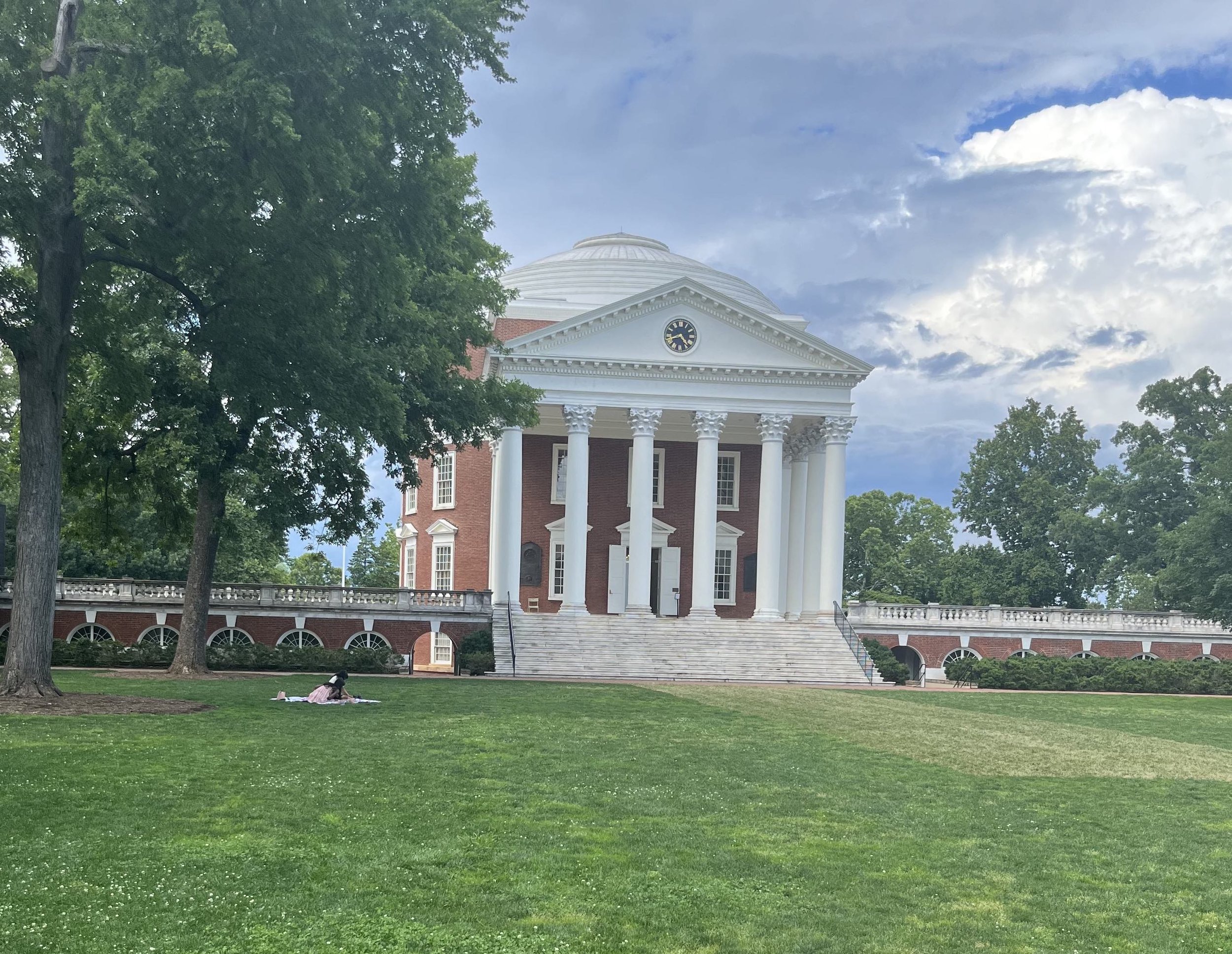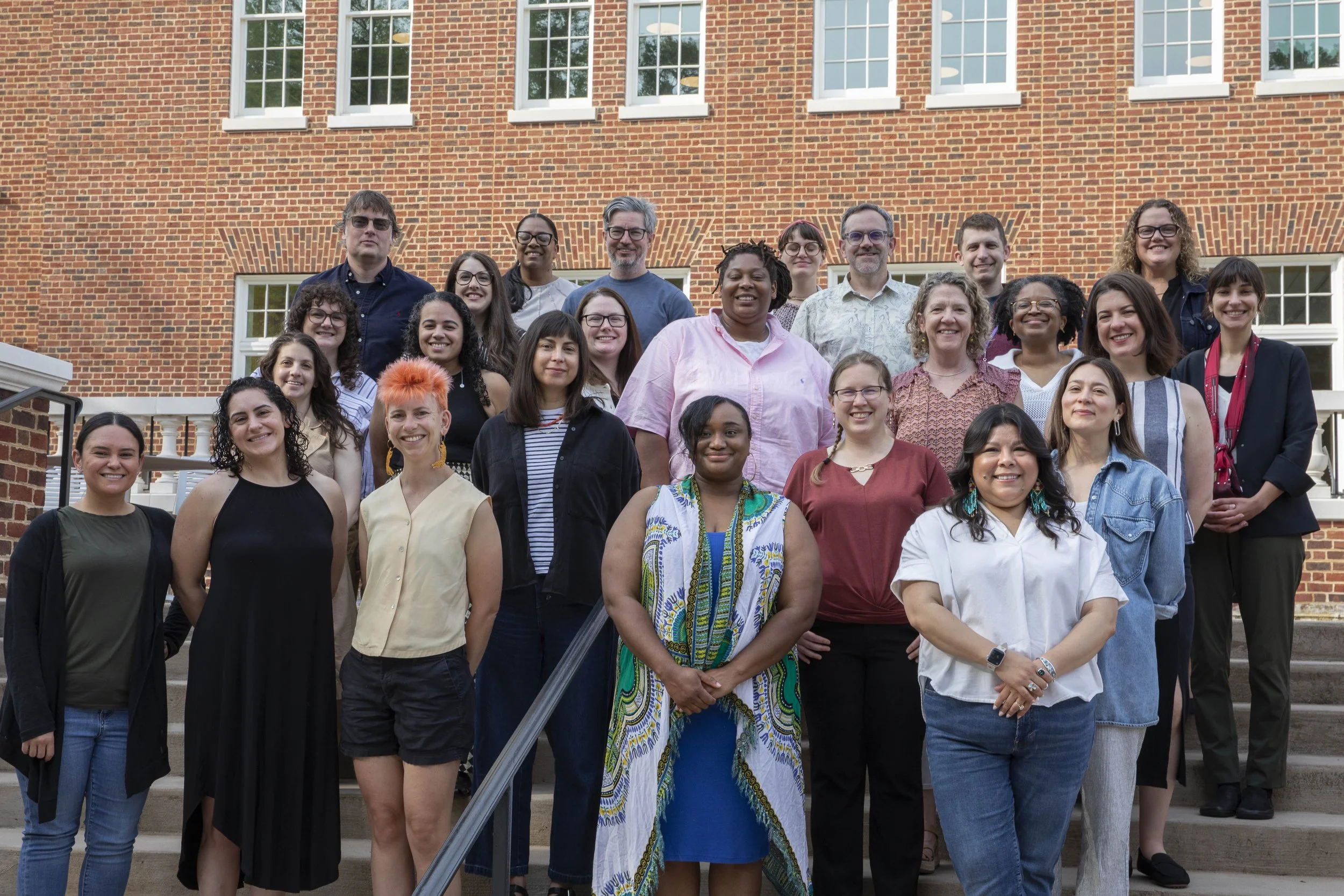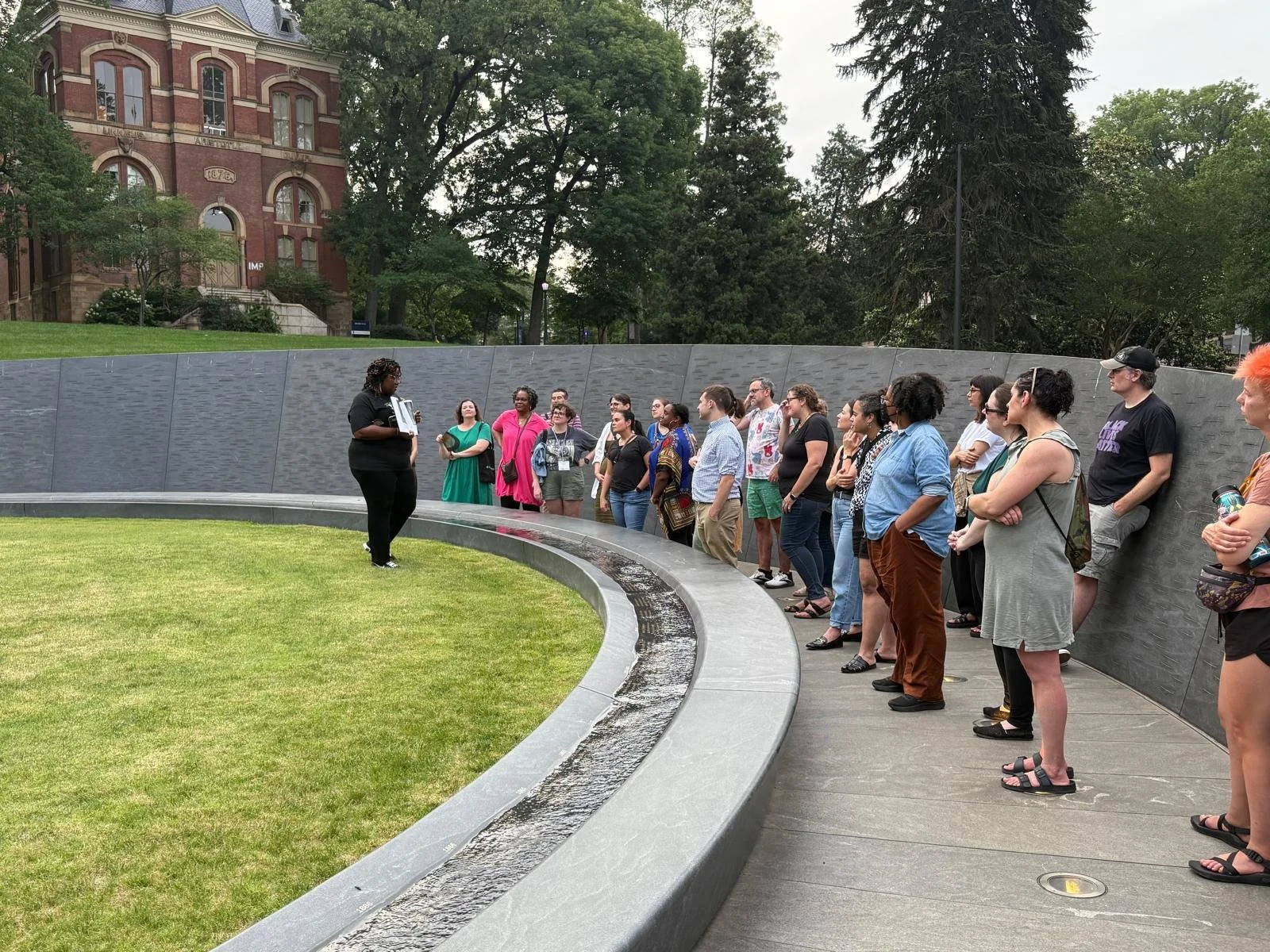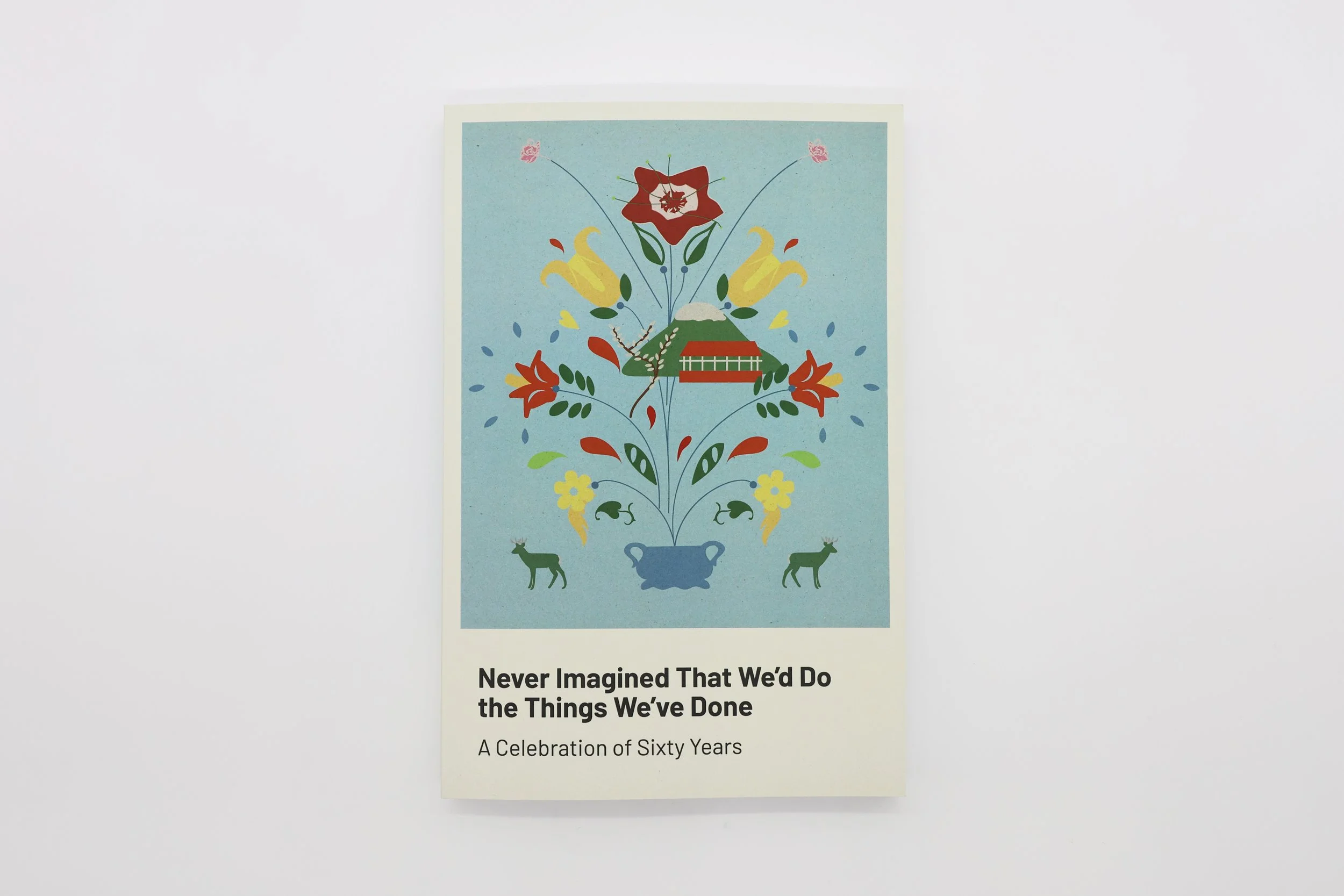Reflections on the 2025 Archives Leadership Institute
In June 2025, I attended the Archives Leadership Institute at the University of Virginia. Since then I have been digesting, reflecting, and feeling gratitude for what was an unforgettable experience.
The Rotunda at the University of Virginia, 2025. Photo by Katherine Barbera.
The Archives Leadership Institute, which is sponsored by the National Historical Publications and Records Commission, was developed to build the capacity of mid-career leaders in the field—providing advanced training for archivists and memory workers to transform the archival profession in practice, theory, stewardship, and care—and this experience was unlike any other leadership program I have attended.
The program invited 25 archives professionals from across the United States, from Hawaii to New York, to experience a week of sessions from some of the best in our field—and beyond. We spent seven days at the University of Virginia learning from the program director and staff as well as faculty and speakers from a range of disciplines—psychology, architecture, HR, history, public history, printmaking, and of course, archives.
Cohort attending the Archives Leadership Institute at the University of Virginia, 2025. Photo by the University of Virginia.
Values-Centered Leadership
Each day, our schedule started early in the morning and ran until dinnertime, sometimes late into the evening. I was astonished by the quality of the sessions and the overall structure of the program, which embraced a values-centered approach to leadership.
We started the week with an exercise looking at our individual values and as the week unfolded—with more than 35 sessions covering topics such as “Radical Empathy,” “Archives and Democracy,” and “Flourishing in Chronic Too Muchness”—we saw and experienced the connections between our individual values and bigger-picture topics that are more common in leadership seminars, such as change management, organizational culture, and communication. By starting with our values—like creativity, compassion, care, excellence, or connection—we learned how these influence our decisions and behaviors in the workplace, especially as leaders. Understanding others’ values also helps us navigate inevitabilities such as conflict, attrition, and crisis.
Ultimately, this program helped us understand that awareness of our values—and how they impact our behaviors—is key to intentional, effective, and collaborative leadership.
One of the most remarkable outcomes of this emphasis was the community and organizational culture that developed so quickly in our group. Within a day, there was a sense of care, safety, and shared purpose that resulted in genuine connection and innovation. Although as participants we contributed to this culture, we were following the lead of the ALI team and the structure they provided.
Grounded in Context and Place
All of this was set against the backdrop of the University of Virginia, which the ALI team incorporated into the program in thoughtful and powerful ways. From attending a libation ceremony at the Memorial to Enslaved Laborers to having dinner in the Rotunda designed by Thomas Jefferson, the built environment, landscape, and history of UVA became one of our teachers that week.
I was also lucky to have the opportunity to stay on the Lawn, the original student housing—called the Academical Village—which is part of a UNESCO World Heritage Site. Almost every evening a group of us would gather in rocking chairs outside of our rooms to watch the fireflies and continue talking about what we’d learned that day.
Cohort at the Memorial to Enslaved Laborers during the 2025 Archives Leadership Institute at the University of Virginia, 2025. Photo by Brenda Gunn.
Thank you
Although the in-person session concluded back in June, the program will continue virtually throughout the rest of the year with several online sessions. We’ll also begin working on our group projects—intending to make a difference in the archives profession.
I’m so grateful to Brenda Gunn, the Director of ALI, and Mary Brackett, ALI faculty, who led us through the week and provided the structure that not only taught us about values-centered leadership but demonstrated it in real-time.
I’m also grateful to the ALI staff, steering committee, and faculty who modeled values-centered leadership for us and shared examples from their own experiences with inspiring grace and vulnerability. And a huge thank you to all of the guest speakers who shared their passion, creativity, and wisdom with us.
Finally, I’m grateful to my fellow cohort members—I learned so much from each of you. I look forward to working together to advance the archives profession.
This post was written by Katherine Barbera, founding partner of Bright Archives.
Questions?
Visit www.brightarchives.com to learn about the work of Bright Archives or send a message to hello@brightarchives.com.








